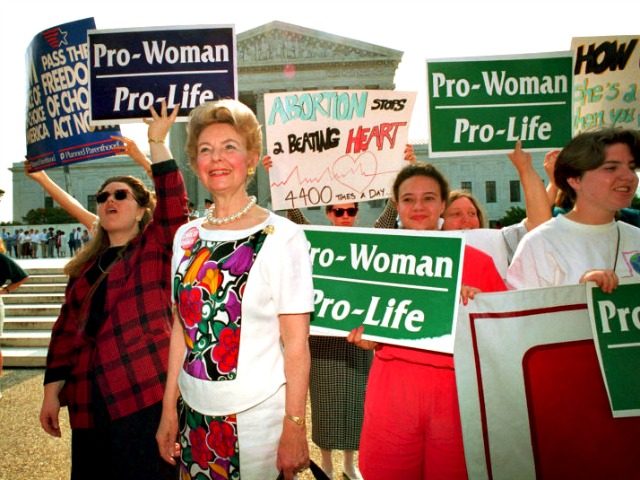Phyllis Schlafly, dead at 92, will be eulogized extensively by those who knew this formidable, brilliant and complex woman personally.
For others of us, she influenced our lives and our politics from afar, but no less importantly.
Mrs. Schlafly was a lioness on the political right; brilliant, focused and a dynamic champion for faith, family and human liberty.
Her effectiveness as a defender of traditional family values is best witnessed by the unending hate and vitriol poured out on her personally, even now in her death.
The matriarch of the radical left feminist movement, Betty Friedan, famously told her in a 1973 debate, I’d like to burn you at the stake.” Such was the impact of this extraordinary woman.
To say that Mrs. Schlafly started a brush fire of grassroots activism that exerted enormous – pivotal – and continuing influence on American politics is probably too little credit.
I first became a fan of hers after becoming involved in West Texas politics for Ronald Reagan in 1976, when I read A Choice Not an Echo (one of twenty books), and then her dazzling writing on the Equal Rights Amendment, which she virtually single-handedly killed when it was only three states away from being ratified into the U.S. Constitution.
She formed for this young conservative at the time, and millions of others like me, bedrock outlooks and approaches to the issues of our day. As a candidate running for the U.S. Congress in 1978, I was both anti-ERA and anti-abortion, and it was Mrs. Schlafly’s masterful analysis of those two key issues that I turned to time and again. [It was also where I learned firsthand about the viciousness of the hard left and their intolerance of ideas, which Mrs. Schlafly withstood daily for 60 years.]
But, and perhaps most importantly, she gave us an insight into the failure of politics – and our republican system – when the people themselves are not directly involved in informing and shaping the issues that directly affect their life, liberty and property.
She thought it is too important to be left to politicians.
If Mrs. Schlafly’s political reach in her life was as wide as the world in which she lived, it is her faith in God and her faith in His purposes for the family that will stand long into the future. She continually reminded us in her writing and speaking that the well-being of the God-ordained family was the most important responsibility political parties carried.
History, such as it is today, may trivialize the contributions that this force of nature made in her days on this earth; she was after all a woman of the intellectual right, not the political left. However, I suspect they were not forgotten when she crossed the “bar” and was told, “Well done, good and faithful servant.”

